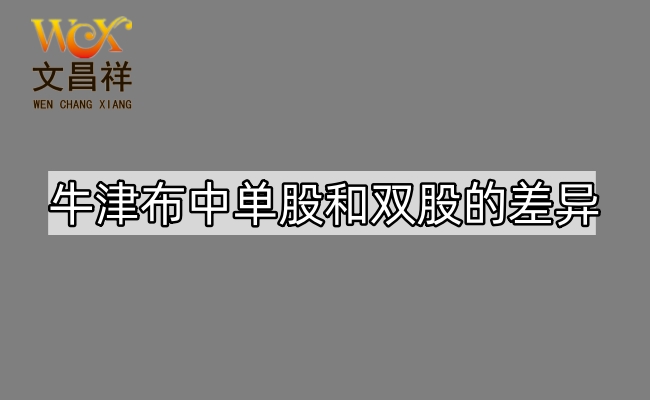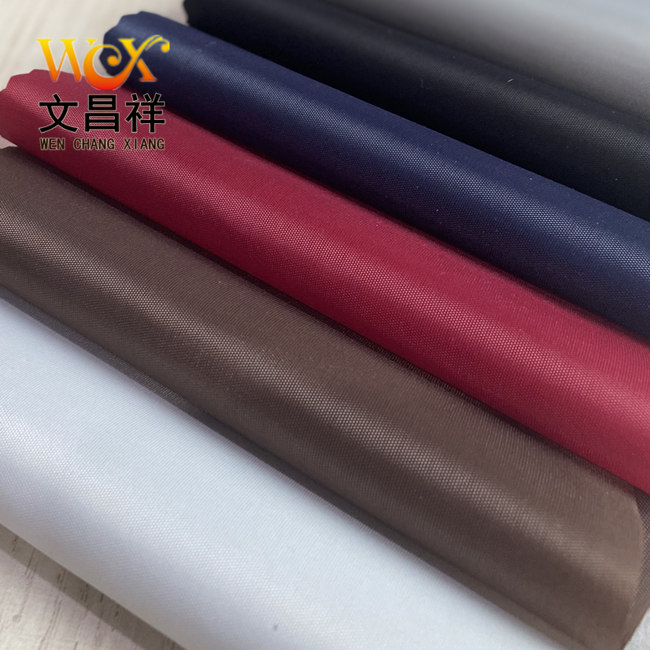In Oxford cloth, single-ply weaving and double-ply weaving are two common production methods.

1. The production process of single strand woven fabric
Single strand Weaving means weaving with one piece of yarn. The production process is as follows:
1. Select appropriate yarn and undergo pre-treatment (such as dyeing, ironing, etc.).
2. Pass the yarn through the shuttle on the loom, and then weave it through the warp and weft threads staggered in different directions.
3. After weaving is completed, the fabric is sorted and processed to give it the desired appearance and feel.
The production process of double-ply woven fabric
Double-ply weaving refers to using two yarns to weave at the same time. The production process is as follows:
1. Select two yarns of the same or different types and undergo preprocessing.
2. Thread the two yarns into different shuttles and weave them through the warp and weft lines staggered in different directions.
3. After weaving is completed, the fabric is sorted and processed to give it the desired appearance and feel.
The difference between single-ply woven and double-ply woven fabrics
The biggest difference between single-ply weaving and double-ply weaving is how many yarns are used. Single-ply weaving uses only one yarn, while double-ply weaving uses two. Therefore, in terms of texture, double strands are thicker and stronger than single strands; in appearance, double strands are more layered and have better texture than single strands; in terms of price, due to the need for more materials and time costs, double strands are more expensive than single strands. Single strands are slightly more expensive.
Due to its lightness, softness and high comfort, it has been widely used in clothing linings or lightweight summer clothing. . At the same time, because of its strong breathability, it has also been well used in outdoor sports products.

Oxford cloth and environmentally friendly recycled series specification classification: 1680D Oxford cloth, 1200D Oxford cloth, 900D Oxford Cloth, 600D Oxford cloth, 420D Oxford cloth, 300D Oxford cloth, 210D Oxford cloth, 150D Oxford cloth, etc.; classified by function: flame retardant Oxford cloth, waterproof flame retardant cloth, silver-coated flame retardant cloth, pu waterproof Oxford cloth, PVC Oxford cloth, TPE, TPU, anti-UV, camouflage Oxford cloth, fluorescent Oxford cloth, compound cloth, etc., please consult customer service for details
</p







